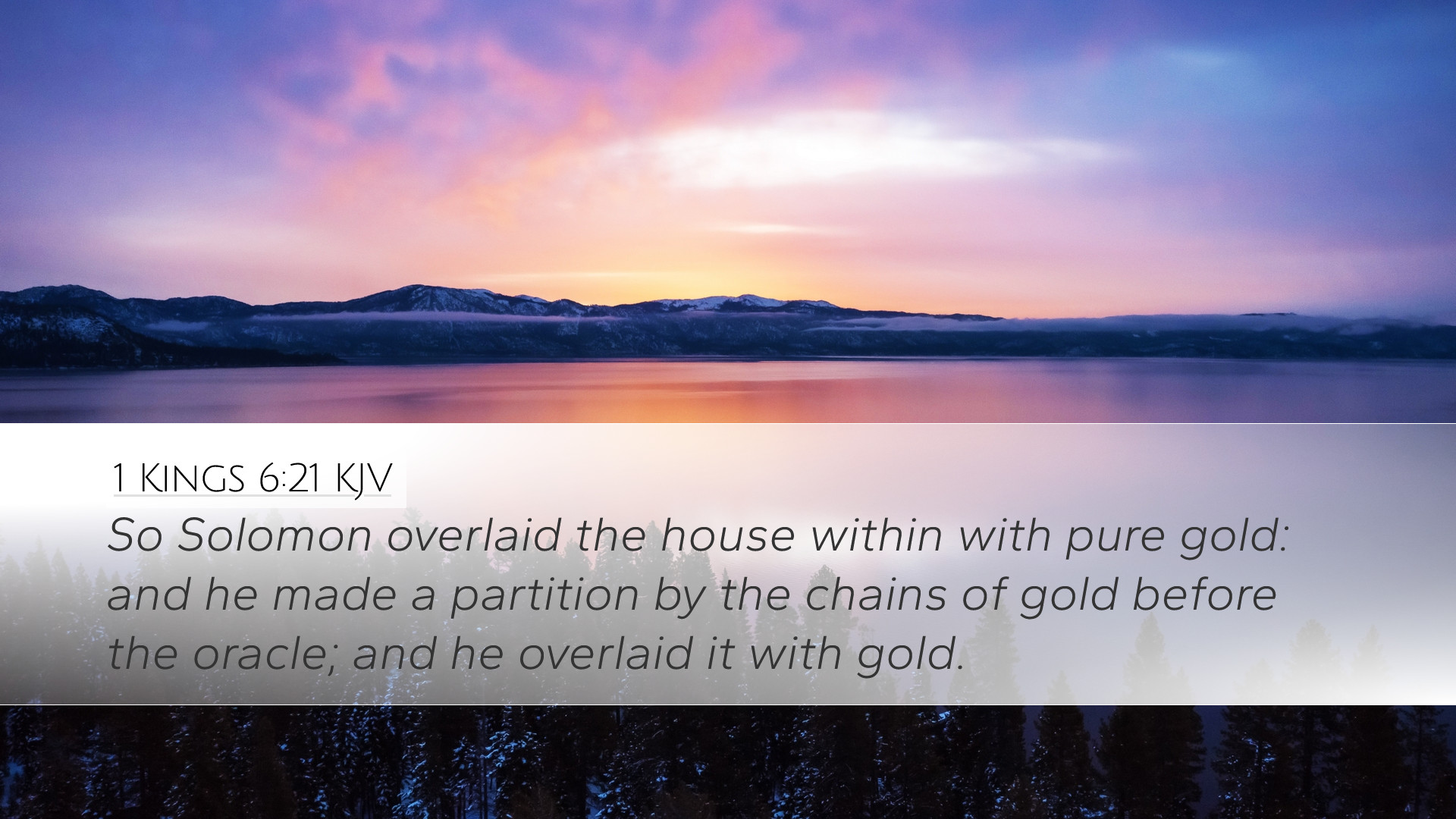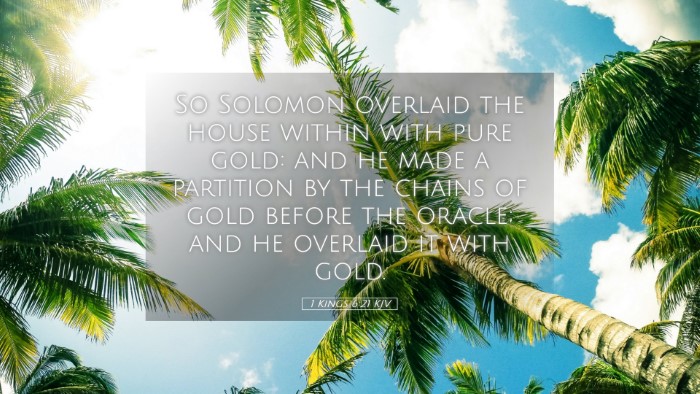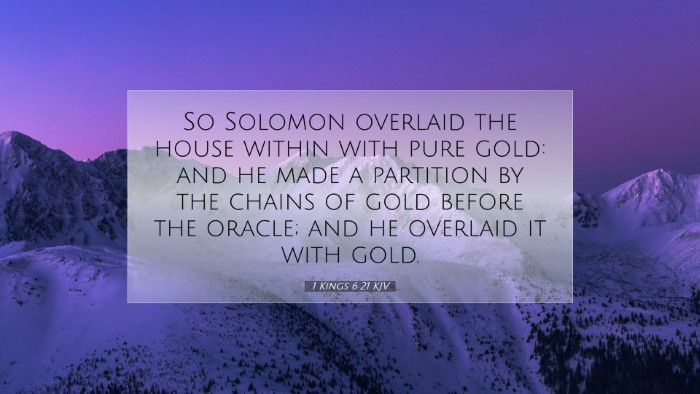Commentary on 1 Kings 6:21
Verse: "And Solomon overlaid the inner house with pure gold: and he made a partition by the chains of gold before the oracle; and he overlaid it with gold." (1 Kings 6:21)
Introduction
This verse describes the magnificence of the Temple that Solomon built in Jerusalem. The emphasis on gold signifies not only wealth but also the glory and holiness of God. In understanding this verse, we draw insights from historical and theological perspectives to appreciate its significance in the Biblical narrative.
Historical Context
The construction of Solomon's Temple was a pivotal moment in Israel's history. It represented a physical manifestation of God's presence among His people and served as a place of worship. Solomon's desire to build the Temple stems from his father David's wish to honor God, reflecting a continuation of divine promise and leadership.
Theological Significance
In his commentary, Matthew Henry highlights that the use of pure gold symbolizes both divinity and royalty. The inner sanctum, or the most holy place, represents the ultimate access to God, reserved for the high priest, emphasizing the sacredness of God’s presence among His people. Gold is also a symbol of purity and perfection, aligning with the divine nature of God's character.
The Inner House
According to Albert Barnes, the description of "the inner house" alludes to the holy of holies, where the Ark of the Covenant was kept. This section of the Temple was carefully constructed to maintain the sanctity of God's dwelling. The division of the Temple into distinct sections symbolizes God's holiness and the separation between the divine and earthly realms.
Gold Overlay
Adam Clarke points out that the extensive overlaying of gold demonstrates not just opulence, but an understanding of the value of worship and reverence towards God. The gold signifies honor and is used to reflect the brilliance of God's glory. Clarke also notes the significance of the chains of gold, suggesting they were not just ornamental but served to accentuate the separation of the holy from the common, a tangible expression of God's nature.
Symbolism of Gold
- Divine Presence: Gold's durability reflects the everlasting nature of God's covenant with Israel.
- Holiness: The choice of gold speaks to the purity and sanctity required in God's dwelling place.
- Worship: The lavish materials used in the Temple reflect the seriousness with which Solomon approached worship, setting an example for generations.
- Wealth of the Nation: The use of gold also signifies Israel's status during Solomon's reign as a powerful and wealthy nation, one that could construct such an elaborate place of worship.
Practical Applications
For pastors and church leaders, this verse serves as a reminder of the importance of creating a worship space that honors God. It challenges congregations to reflect on how their spaces of worship reflect this same reverence.
For students and theologians, studying the intricacies of the Temple helps to appreciate the historical and spiritual journeys of Israel. Understanding the Temple’s architecture offers deeper insights into God’s revelation throughout Scripture.
The Worship Factor
The elaborate construction, particularly the interior’s dedication to God, invites believers to consider their personal worship. Just as Solomon spared no expense, believers should reflect on their contributions to worship and service.
Conclusion
1 Kings 6:21 encapsulates the grandeur and significance of Solomon's Temple as an enduring symbol of God's desire to dwell with humanity. Through gold, partitioning, and careful construction, the text delineates the importance of holiness, reverence, and worship toward God. As we explore and examine this passage, we are drawn into a deeper understanding of our own relationship with the divine and the call to create spaces—both physical and spiritual—that honor the Creator.


